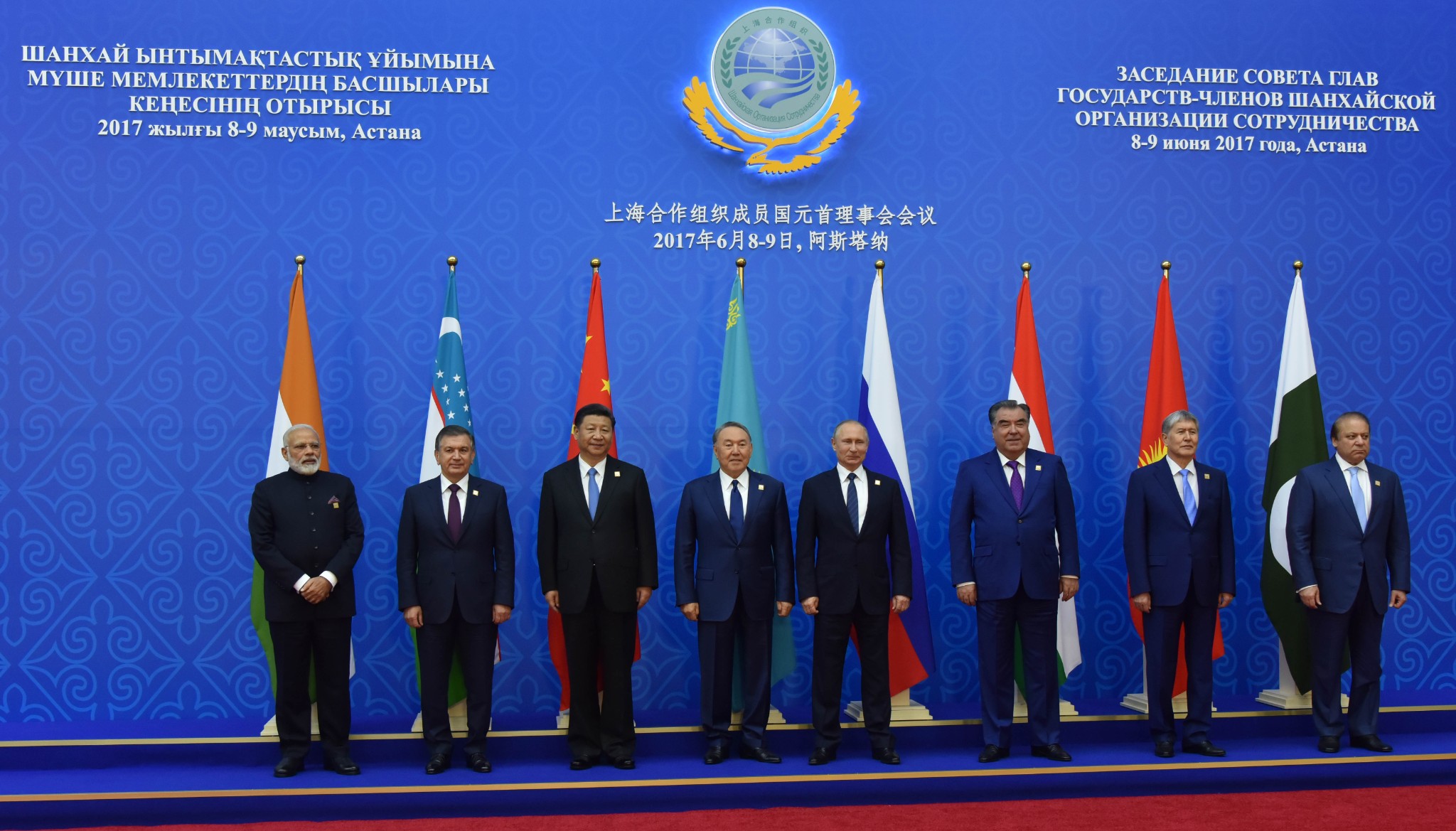 The SCO agreed on Iran’s membership. Credit: Flickr / MEAphotogallery
The SCO agreed on Iran’s membership. Credit: Flickr / MEAphotogallery
The Possible Impacts of Iran’s SCO Membership
On September 17th, Iran became a full member of the Shanghai Cooperation Organization (SCO) at the 21st summit in Tajikistan’s capital, Dushanbe. This is a diplomatic success that the country has long been waiting for. Iran obtained observer status with the SCO in 2005, applied for full membership in 2008, and after almost 15 years finally achieved its goal of becoming a permanent member.
The SCO was established in 2001. It includes China, Russia, Kazakhstan, Kyrgyzstan, Tajikistan, Uzbekistan, and since 2017 India, and Pakistan. This makes Iran the ninth full member of the SCO, opens new opportunities for the country, both politically and economically, and provides a big market with great potential for Iran. In terms of geographic reach, the SCO is the largest regional organization in the world. The organization’s member countries comprise almost 50% of the world’s population and generate more than 20 percent of global GDP.
The benefits of SCO membership are potentially significant for Iran. Due to its geopolitical location and energy resources, Iran could become an important trading partner and will certainly work to forge even closer ties with other member states. Iran’s membership could bring economic benefits to the country and promote cooperation in the energy sector. Iran could serve as an important supplier of energy, especially with China which could be very useful due to the sanctions imposed on the country. Both China and Russia are keen to do business with Iran. China and Iran have already signed a 25-year cooperation agreement and are interested in working together on further projects. This could involve further talks on security and defense. Iran’s membership in the SCO could also make the country less vulnerable to Western sanctions, making it more difficult to increase pressure on Iran in future nuclear or other diplomatic talks. Furthermore, both member states, China and Russia, are also permanent members of the UN Security Council and thereby important actors in the nuclear talks with Iran. Accordingly, Iran’s membership could enable it to negotiate from a position of greater strength in the future as the country becomes less isolated.
With the U.S. unilateral withdrawal from the JCPOA and renewed sanctions, Iran has turned its focus to the east and closer ties to neighboring countries. For Iran, its SCO membership provides a counterweight to western influences, particularly the United States. Tehran feels that it has been treated unfairly and believes that its membership in the SCO will open new doors.
Iran sees itself as a regional power and wants to be perceived as such. The country regards its membership in the SCO as an important step to which the country is entitled and thinks that stability in the region would not be possible without Iranian support. With the U.S. withdrawal from Afghanistan affecting the regional balance of power and benefiting Iran’s position, Iran likely believes that it has a better card in hand for future talks.
However, it remains to be seen to what extent Iran will derive economic benefits from its membership, as U.S. sanctions and the resulting secondary sanctions could still be a challenge. Nor is it certain what Iran’s membership actually means for the country’s role in the region, and whether this could affect future negotiations on the nuclear issue, as the country hopes. Iran’s SCO membership is unlikely to meet all of the country’s goals or generate immediate solutions for the country in the short term.
The country still needs to work with the U.S. and the European countries on its nuclear issue. Iran’s membership alone will not change the urgency of finding a diplomatic solution to the current nuclear issue, particularly as Iran is expected to have enough nuclear material for a breakout capability soon. On September 21, President Biden stated his desire for a diplomatic solution again before the 76th session of the United Nations General Assembly, but recent reports indicate Washington’s patience is wearing thin. Washington and Iran should now seize and build on the opportunity made possible by the IAEA’s recent visit to Iran.
The new government in Tehran has been ambivalent about renegotiating the P5+1 nuclear agreement, but this recent move suggests that they may be laying the groundwork for reopening those negotiations. A key point may thus be whether they see this new “alliance” of sorts as giving them greater confidence in negotiating with the U.S., feeling more reassured that they will have support from Russia and China. Considering current events, this seems to be one of the most significant implications of this action.





